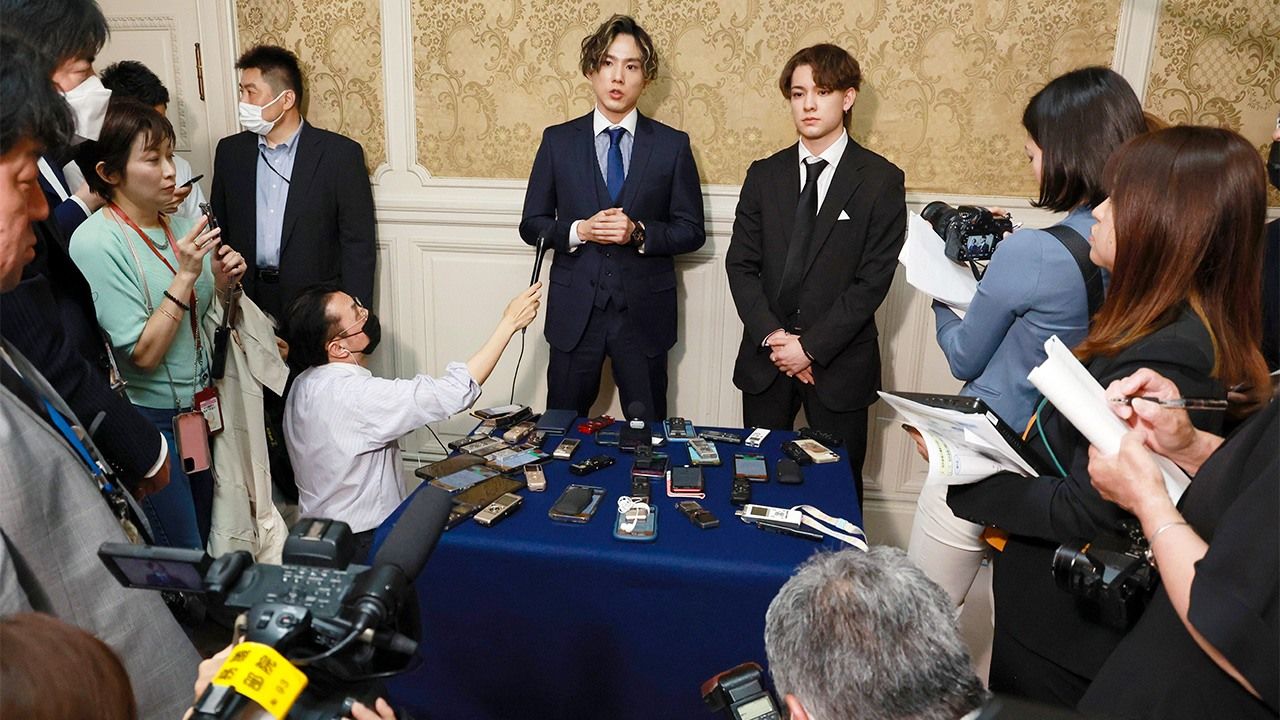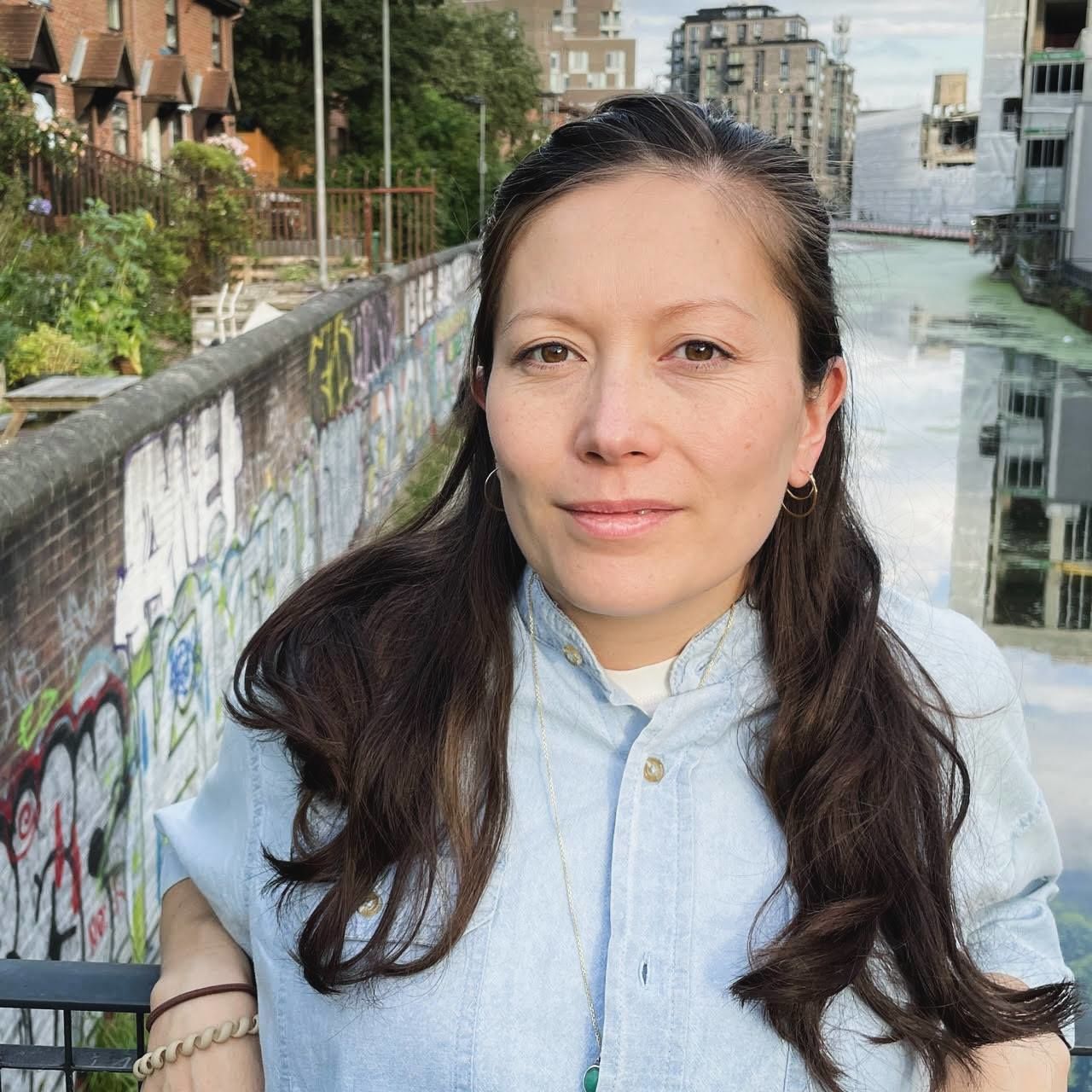
Secret No More: BBC Documentary Brings Fresh Attention to a J-Pop Scandal
Society Music- English
- 日本語
- 简体字
- 繁體字
- Français
- Español
- العربية
- Русский
A New Documentary Lets in Light
On March 7, 2023, the BBC aired a documentary on allegations of sexual abuse by Johnny Kitagawa (1931–2019), the late head of the Johnny and Associates talent agency, where he produced countless boy bands and was a godlike figure in the Japanese music industry for over half a century. The program included interviews with four former members of the agency who said they had experienced or were aware of abuse by Kitagawa while young teenagers.
The allegations were not new in Japan. Weekly magazine Shūkan Bunshun first reported on them from 1999 in a series of articles that also included claims Kitagawa had enabled underage smoking and drinking.
In 2002, Kitagawa won a libel case against the magazine. But when the magazine appealed, the court reduced the damages it had previously awarded, reiterating its finding that the claims about smoking and drinking were false, yet at the same time acknowledging that the sexual abuse allegations were true. Nevertheless, Kitagawa was not criminally charged, while the allegations against him and his powerful and omnipresent agency were ignored by major Japanese media outlets that feared losing access to his agency’s highly marketable stars.
Since the BBC’s documentary, Predator: The Secret Scandal of J-Pop, aired this year, this wall of silence has started to crumble, three years after Kitagawa’s death ended a career that spanned over six decades.
News of the documentary’s content quickly spread on social media, prompting several other victims to come forward. Their testimony was reported by both Japanese and foreign media.
In May, the current head of the agency—Julie Fujishima, who is also Kitagawa’s niece—issued a carefully worded video statement in which she said, “We deeply apologize to those who claim to have been victims.”
An Outside Perspective on the Problem
Megumi Inman, who directed and produced the documentary, says she expected it would be difficult work.
“I knew it was going to be really, really hard. Number one, it’s about child sexual abuse, and that’s always a very delicate, very difficult subject to cover. But I wasn’t expecting the level of fear that quite a lot of people I spoke to initially showed. A lot of the time, people’s first reactions were, ‘Oh, Meg, be careful. Do you really want to do this story?’”

Documentary producer Megumi Inman is pleased with the impact her work appears to be having in Japan. (Courtesy Megumi Inman)
Inman notes that she had a number of off-the-record conversations while creating the program. “I wasn’t surprised that people didn’t want to talk on the record. But I was disappointed that people who maybe I felt should have spoken on the record didn’t—because they were just too afraid of what might happen to their careers, or might happen to them.
“We’re talking about Johnny’s abuse as if everybody knew. But when we started working on this story a year ago, it was still very hush-hush. So, I think this documentary coming out has changed the way we speak about the sexual abuse crimes of Johnny Kitagawa.”
It helped, says Inman, that she was working with a non-Japanese media organization. “One key thing was being from the BBC. As a Japanese media outlet, you are intrinsically linked to Johnny and Associates because you want those stars on your network, you want them in your papers, you want them in your publications. I think because people in Japan know that the BBC doesn’t have that, they could trust us more in reporting the truth. Also, when speaking to survivors, I think they felt that we were a safer and more reliable platform to tell their stories through.”
Inman’s mother is Japanese and her father is British; she lived in Japan from age 9 to 14. “Johhny’s songs were a sort of background music to my childhood,” she notes. “I just accepted their existence in Japanese entertainment. It was only when I left Japan and came back to Britain that I noticed there’s nothing that compares there, or in the United States, as far as I know.”
She knew about the agency and the outsized influence it wielded in the Japanese entertainment world. “There were always rumors that Johnny Kitagawa had his favorite boys,” she says, “but as a young teenager I never thought further than that. I didn’t know about the Shūkan Bunshun libel case until I started researching this documentary.”
Hoping to Help Victims
Strikingly, only one of the four former Johnny and Associates members Inman interviewed actually seemed to recognize his experiences as abuse.
“What’s really difficult about child sexual abuse is that this happens to you when you’re a child. In the case of Johnny Kitagawa, it happened to children who had never had any sexual experiences before. In Japan, sex abuse, and child sexual abuse too, just isn’t talked about much. I think it becomes very difficult to acknowledge or understand what you went through.”
Male on male sexual abuse in particular, she says, is something that’s not really talked about in Japan. “I don’t think people even know that it can happen, which is a bit crazy. But I think that indicates how Japan is still far behind on LGBTQ issues. Japan is still a very homophobic society, so male survivors of abuse aren’t recognized as victims in any way. People can’t talk about it because it’s shameful.”
As Inman notes, the Japanese media knew that there had been a libel case stating that Johnny Kitagawa was sexually abusing boys, but they turned a blind eye. While some major Japanese media organizations have now reported victims’ testimony, there hasn’t been the media storm that might perhaps normally be expected, given the profile of Johnny and Associates.
For many years, she states, “the media didn’t do anything about it. They’re part of the story, aren’t they? . . . And that’s one criticism that we’ve seen on social media—why have the Japanese media not reported on this? Why has it taken a foreign outlet to talk about it?”
Inman welcomes Julie Fujishima coming out and speaking publicly about the situation, and commends the follow-up reporting that Shūkan Bunshun has done since the documentary made a splash this spring. “That has kept this story alive and in public discussion. I am so grateful to and proud of the young men who have since spoken out. It could have been complete silence like in 1999, so I’m really pleased that hasn’t happened.
“It has led to a point where there’s talk of change to child protection laws. The word ‘grooming’ is now being discussed. It wasn’t a word that existed in the Japanese language, but it’s now something that people are trying to understand . . . to grasp how predators manipulate and control their victims.”
As she says, though, Japan is really still at the beginning. “There’s still so much more work to be done. There needs to be an independent investigation into Johnny and Associates, but also into the media relationships that surrounded and protected it for decades.”
(Originally written in English based on an interview by Tony McNicol. Banner photo: Former Johnny and Associates members Okamoto Kauan, at right, and Hashida Yasushi speak at the National Diet following a hearing with Constitutional Democratic Party of Japan politicians on May 16, 2023. © Jiji.)